12 start with F start with F
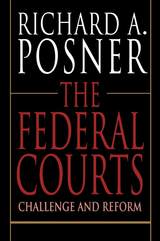
The federal courts are the world’s most powerful judiciary and a vital element of the American political system. In recent decades, these courts have experienced unprecedented growth in caseload and personnel. Many judges and lawyers believe that a “crisis in quantity” is imperiling the ability of the federal judiciary to perform its historic function of administering justice fairly and expeditiously.
In a substantially revised edition of his widely acclaimed 1985 book The Federal Courts: Crisis and Reform, Chief Judge Richard A. Posner of the U.S. Court of Appeals for the Seventh Circuit provides a comprehensive evaluation of the federal judiciary and a detailed program of judicial reform. Drawing on economic and political theory as well as on legal analysis and his own extensive judicial experience, Posner sketches the history of the federal courts, describes the contemporary institution, appraises the concerns that have been expressed with the courts’ performance, and presents a variety of proposals for both short-term and fundamental reform. In contrast to some of the direr prophecies of observers of the federal courts, Posner emphasizes the success of these courts in adapting to steep caseload growth with minimum sacrifice in quality.
Although the book ranges over a variety of traditional topics in federal jurisdiction, the focus is steady on federal judicial administration conceived of as an interdisciplinary approach emphasizing system rather than doctrine, statistics rather than impressions, and caseload rather than cases. Like the earlier edition, this book promises to be a landmark in the empirical study of judicial administration.

Federal Judges was first published in 1972. Minnesota Archive Editions uses digital technology to make long-unavailable books once again accessible, and are published unaltered from the original University of Minnesota Press editions.
Despite the importance of federal judges in the system of American government, relatively little scholarly attention has been directed toward the process of appointing these judges -- how it operates and what types of individuals become judges. Professor Chase analyzes and evaluates the appointing system and makes some provocative proposals for changes which he believes would improve and strengthen the federal judicial system.
The study is concerned with the appointing process as it applies to federal judges below the level of the Supreme Court who receive lifetime appointments. These are the judges who serve in what are known as Article III courts, the courts constituted by Congress in accordance with Article III of the Constitution. They include courts of appeals, district courts, the court of claims, the court of customs and patent appeals, and the customs court.
For this study the author had access to Department of Justice records, and he observed for several months the negotiations and discussions in the department involving the selection of judges by President Kennedy's administration. He conducted extensive interviews with officials in the Kennedy administration as well as with officials in the Eisenhower and Johnson administrations who played leading roles in the appointment of judges. In addition, he interviewed many judges, lawyers, newsmen, and political leaders, as well as a sampling of U.S. senators and most of the recent chairmen of the American Bar Association's Committee on Federal Judiciary.

No sitting federal judge has ever written so trenchant a critique of the federal judiciary as Richard A. Posner does in this, his most confrontational book. Skewering the politicization of the Supreme Court, the mismanagement of judicial staff, the overly complex system of appeals, the threat of originalism, outdated procedures, and the backward-looking traditions of law schools and the American judicial system, Posner has written a cri de coeur and a battle cry. With the prospect that the Supreme Court will soon be remade in substantial, potentially revanchist, ways, The Federal Judiciary exposes the American legal system’s most troubling failures in order to instigate much-needed reforms.
Posner presents excerpts from legal texts and arguments to expose their flaws, incorporating his own explanation and judgment to educate readers in the mechanics of judicial thinking. This rigorous intellectual work separates sound logic from artful rhetoric designed to subvert precedent and open the door to oblique interpretations of American constitutional law. In a rebuke of Justice Antonin Scalia’s legacy, Posner shows how originalists have used these rhetorical strategies to advance a self-serving political agenda. Judicial culture adheres to an antiquated traditionalism, Posner argues, that inhibits progressive responses to threats from new technologies and other unforeseen challenges to society.
With practical prescriptions for overhauling judicial practices and precedents, The Federal Judiciary offers an unequaled resource for understanding the institution designed by the founders to check congressional and presidential power and resist its abuse.
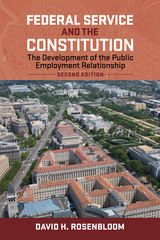
Conceived during the turbulent period of the late 1960s when ‘rights talk’ was ubiquitous, Federal Service and the Constitution, a landmark study first published in 1971, strove to understand how the rights of federal civil servants had become so differentiated from those of ordinary citizens. Now in a new, second edition, this legal–historical analysis reviews and enlarges its look at the constitutional rights of federal employees from the nation's founding to the present.
Thoroughly revised and updated, this highly readable history of the constitutional relationship between federal employees and the government describes how the changing political, administrative, and institutional concepts of what the federal service is or should be are related to the development of constitutional doctrines defining federal employees’ constitutional rights. Developments in society since 1971 have dramatically changed the federal bureaucracy, protecting and expanding employment rights, while at the same time Supreme Court decisions are eroding the special legal status of federal employees. Looking at the current status of these constitutional rights, Rosenbloom concludes by suggesting that recent Supreme Court decisions may reflect a shift to a model based on private sector practices.

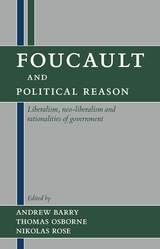
These twelve essays provide a critical introduction to Foucault's work on politics, exploring its relevance to past and current thinking about liberal and neo-liberal forms of government. Moving away from the great texts of liberal political philosophy, this book looks closely at the technical means with which the ideals of liberal political rationalities have been put into practice in such areas as schools, welfare, and the insurance industry.
This fresh approach to one of the seminal thinkers of the twentieth century is essential reading for anyone interested in social and cultural theory, sociology, and politics.
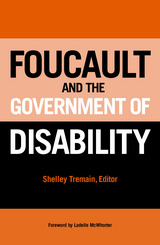
Foucault and the Government of Disability is the first book-length investigation of the relevance and importance of the ideas of Michel Foucault to the field of disability studies-and vice versa. Over the last thirty years, politicized conceptions of disability have precipitated significant social change, including the landmark Americans with Disabilities Act in 1990, the redesign of urban landscapes, the appearance of closed-captioning on televisions, and the growing recognition that disabled people constitute a marginalized and disenfranchised constituency.
The provocative essays in this volume respond to Foucault's call to question what is regarded as natural, inevitable, ethical, and liberating, while they challenge established understandings of Foucault's analyses and offer fresh approaches to his work. The book's roster of distinguished international contributors represents a broad range of disciplines and perspectives, making this a timely and necessary addition to the burgeoning field of disability studies.
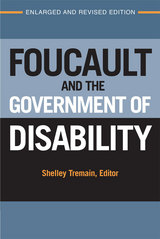
“[A]n important, prescient, and necessary contribution…a kind of litmus test for the efficacy of Foucault’s concepts in the study of disability, concepts that lead to a refusal of the biological essentialism implied in the disability/impairment binary.”
—Foucault Studies
“Tremain has done an exceptional job at organizing and procuring important, rigorously argued, and entertaining essays…. This book should be a mandatory read for anyone interested in contemporary philosophical debates surrounding the experience of disability."
—Essays in Philosophy
“A beautiful exploration of how Foucault’s analytics of power and genealogies of discursive knowledges can open up new avenues for thinking critically about phenomena that many of us take to be inevitable and thus new ways of resisting and possibly at times redirecting the forces that shape our lives. Every scholar, every person with an interest in Foucault or in political theory generally, needs to read this book.”
—Ladelle McWhorter, University of Richmond
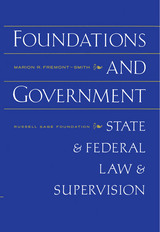
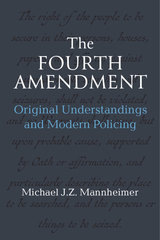
Police are required to obey the law. While that seems obvious, courts have lost track of that requirement due to misinterpreting the two constitutional provisions governing police conduct: the Fourth and Fourteenth Amendments. The Fourth Amendment forbids "unreasonable searches and seizures" and is the source of most constitutional constraints on policing. Although that provision technically applies only to the federal government, the Fourteenth Amendment, ratified in the wake of the Civil War, has been deemed to apply the Fourth Amendment to the States.
This book contends that the courts’ misinterpretation of these provisions has led them to hold federal and state law enforcement mistakenly to the same constitutional standards. The Fourth Amendment was originally understood as a federalism, or “states’ rights,” provision that, in effect, required federal agents to adhere to state law when searching or seizing. Thus, applying the same constraint to the States is impossible. Instead, the Fourteenth Amendment was originally understood in part as requiring that state officials (1) adhere to state law, (2) not discriminate, and (3) not be granted excessive discretion by legislators. These principles should guide judicial review of modern policing. Instead, constitutional constraints on policing are too strict and too forgiving at the same time. In this book, Michael J.Z. Mannheimer calls for a reimagination of what modern policing could look like based on the original understandings of the Fourth and Fourteenth Amendments.

In 1991 the Eritrean People’s Liberation Front (EPLF) took over Asmara and completed the liberation of Eritrea; formal independence came two years later after a referendum in May 1993. It was the climax of a thirty-year struggle, though the EPLF itself was formed only in the early 1970s.
From the beginning, Eritrean nationalism was divided. Ethiopia’s appeal to a joint Christian imperial past alienated the Muslim pastoral lowland people in the areas where Eritrean nationalism first appeared. It was not until the early 1970s that the Christian elements of the population finally joined the liberation struggle on a substantial scale.
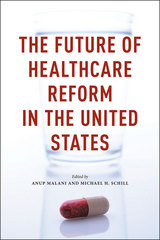
In the years since the passage of the Patient Protection and Affordable Care Act (PPACA, or, colloquially, Obamacare), most of the discussion about it has been political. But as the politics fade and the law's many complex provisions take effect, a much more interesting question begins to emerge: How will the law affect the American health care regime in the coming years and decades?
This book brings together fourteen leading scholars from the fields of law, economics, medicine, and public health to answer that question. Taking discipline-specific views, they offer their analyses and predictions for the future of health care reform. By turns thought-provoking, counterintuitive, and even contradictory, the essays together cover the landscape of positions on the PPACA's prospects. Some see efficiency growth and moderating prices; others fear a strangling bureaucracy and spiraling costs. The result is a deeply informed, richly substantive discussion that will trouble settled positions and lay the groundwork for analysis and assessment as the law's effects begin to become clear.
READERS
Browse our collection.
PUBLISHERS
See BiblioVault's publisher services.
STUDENT SERVICES
Files for college accessibility offices.
UChicago Accessibility Resources
home | accessibility | search | about | contact us
BiblioVault ® 2001 - 2024
The University of Chicago Press









